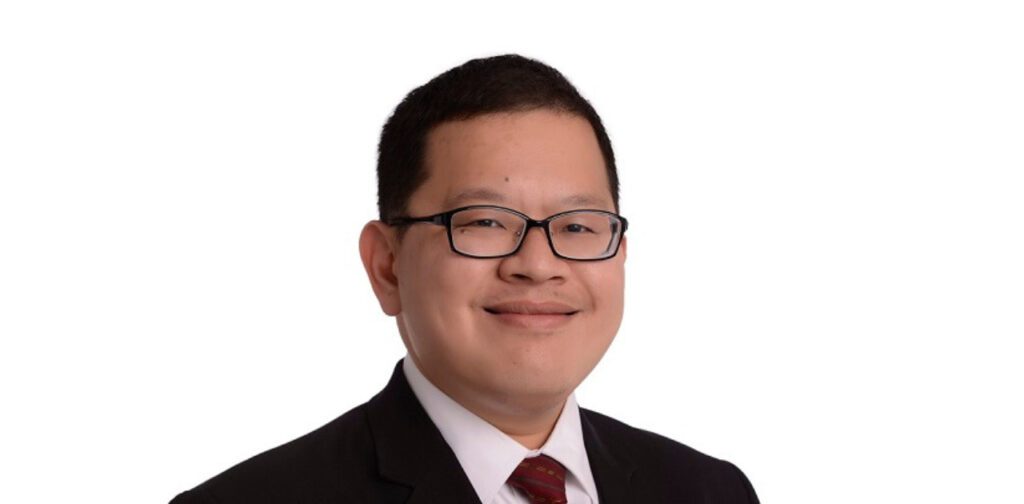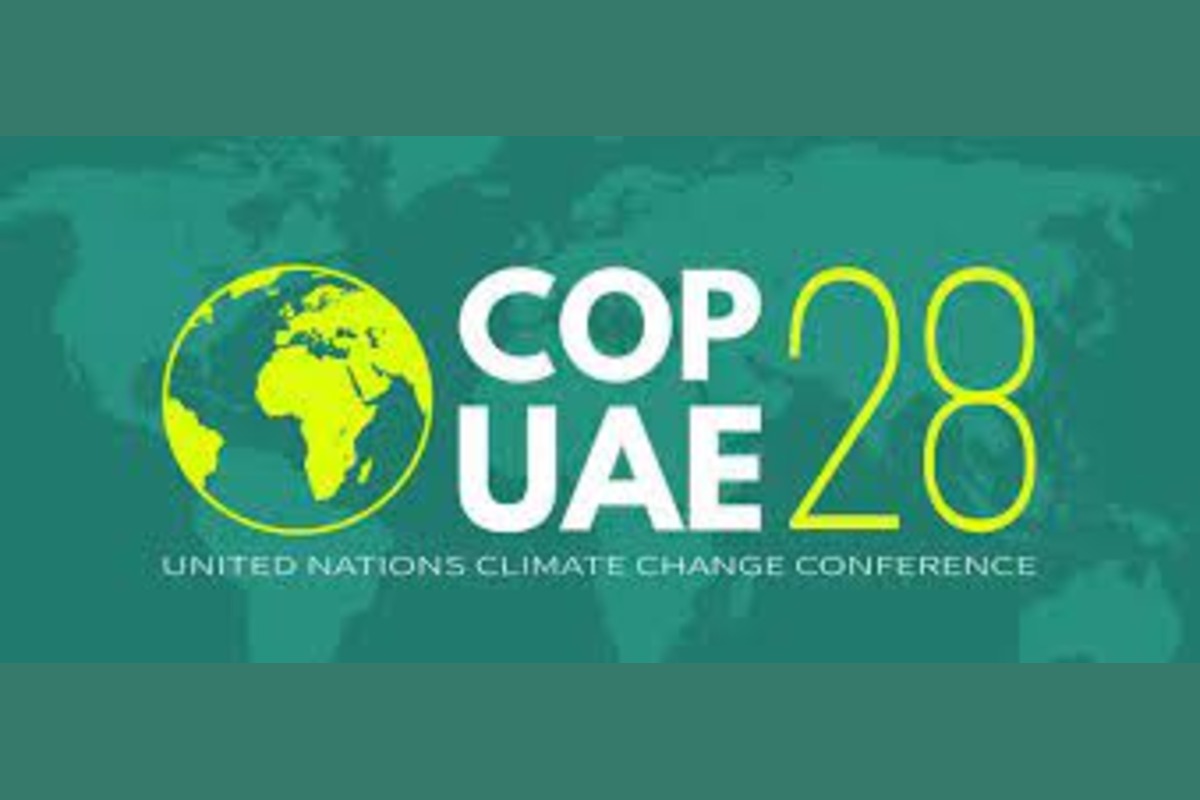
ESG Changemaker Award: Mr Kelvin Lester K. Lee’s contribution to a financially-stable and greener tomorrow
The Sustainable Brands Journal caught up with Mr Kelvin Lester K. Lee, advising on how to foster sustainable finance in the country and creating a financial landscape that aligns with the needs of people and the environment.
Questionnaire to Mr Kelvin Lester K. Lee:
1. As the Supervising Commissioner of the Markets and Securities Regulation Department and a prominent advocate for sustainable finance, what key measures has the SEC Philippines taken to promote sustainable asset classes and spur market activity in the Philippine Sustainable Finance Capital Market?
The Securities and Exchange Commission (SEC) participates actively in national and international efforts to promote sustainable finance. In the Philippines, the SEC has released numerous guidelines on sustainable asset classes to help direct capital flows into sustainable activities:
· Memorandum Circular No. 12, series of 2018 (SEC MC No. 12, s. 2018) or the Guidelines on the Issuance of Green Bonds under the ASEAN Green Bonds Standards in the Philippines
· SEC MC. No. 4, s. 2019 or the Sustainability Reporting Guidelines for Publicly Listed Companies
· SEC MC. No. 8, s. 2019 or the Guidelines on the Issuance of Sustainability Bonds under the ASEAN Sustainability Bonds Standards in the Philippines
· SEC MC. No. 9, s. 2019 or the Guidelines on the Issuance of Social Bonds under the ASEAN Social Bonds Standards in the Philippines
· SEC MC No. 3, s. 2023 or the Guidelines on the Issuance of Sustainability-Linked Bonds under the ASEAN Sustainability-Linked Bond Standards in the Philippines
· SEC MC No. 4, s. 2023 or the Adoption of the ASEAN Sustainable and Responsible Fund Standards (ASEAN SRFS); and Establishment of Rules on: 1) Qualification of a Local Investment Company under the ASEAN SRFS; 2) Recognition of a Foreign Collective Investment Scheme qualified under the ASEAN SRFS that seeks to offer in the Philippines under the ASEAN CIS framework
The following rules have been issued by the SEC:
· MC No. 5, s. 2019 or the Guidelines on the Implementation of ACMF Pass Under the ASEAN Capital Market Professional Mobility Framework. The ACMF Pass allows the freer movement of professionals licensed from a home country to perform investment advice activities and issue research reports on ASEAN financial products in a host country.
· Rules on Authorization of an Investment Company as Qualifying Collective Investment Schemes (CIS) and Recognition of a Foreign CIS Under the ASEAN CIS Framework. Under this framework, qualified investment companies from the Philippines may now offer their shares to Malaysia, Singapore and Thailand and vice versa. The ASEAN CIS Framework is one of the initiatives undertaken by the ASEAN Capital Markets Forum (ACMF), which allows fund managers operating in a member jurisdiction to offer CIS such as unit trust funds or mutual funds to retail investors in other member jurisdictions under a streamlined authorization process.
2. As the Commissioner’s primary representative to the Inter-agency Technical Working Group for Sustainable Finance (ITSF), how do you envision the Philippine Sustainable Finance Roadmap shaping the future of sustainable finance in the country?
The Philippine Sustainable Finance Roadmap affirms the country’s commitment to the UN Sustainable Development Goals (SDGs) and the country’s long-term plan, Ambisyon 2040.
It is important to create a conducive environment for sustainable finance in the Philippines to develop. Encouraging sustainability disclosures, conducting capacity building, and active participation in international initiatives are all part of this.
3. The introduction of reduced filing fees for green bonds is a positive step in encouraging issuances. Have you observed any notable increase in green bond issuances or other sustainable financial instruments in the Philippine capital market as a result of this policy change?
I am pleased to share that we continue to see issuances in the local capital market regardless of the filing fees and amid external market conditions. These companies include ASA Philippines which is in fact not a publicly listed company and is a microfinance institution. ASA Philippines issued the country’s first gender bonds under the SEC’s social bonds framework (SEC MC. No. 9, s. 2019).
4. There is a need for external assurance providers in the Philippine sustainability market. What steps are being taken to address this need and ensure the credibility and transparency of sustainable finance activities?
At present, there are no prominent external assurance providers locally. As the Supervising Commissioner of the Markets and Securities Regulation Department and a prominent advocate for sustainable finance, I acknowledge the challenges that come with the situation. Top of mind is the additional costs entailed by issuers to get external assurance abroad. In line with this, we have approved the waiving of filing fees for GSS bonds to help defray the cost of issuance.
An important step that we are doing to bridge the gap is capacity-building. Together with multi-lateral development banks (MDBs), the Commission is taking steps to raise awareness and support capital raising for relevant sustainability and climate transition projects. These include executive training sessions for companies from the real sector, which the Commission hosted with the IFC just very recently.
5. As businesses and organizations set ambitious sustainability targets to align with global goals like the SDGs and the Paris Agreement, how is the SEC Philippines encouraging transparency and disclosure of climate-related risks and opportunities among issuers and market participants?
To encourage transparency and disclosure of climate-related risks among issuers and market participants the SEC promulgated SEC MC No. 4 series of 2019, or the Sustainability Reporting Guidelines for Publicly-Listed Companies, which conveniently allows companies to report on sustainability and non-financial information either by using any globally Recognized Standards and/or Frameworks in Reporting Sustainability such as the Global Reporting Initiative’s (GRI) Sustainability Reporting Standards, the International Integrated Reporting Council’s (IIRC) Integrated Reporting (IR) Framework, the Sustainability Accounting Standards Board’s (SASB) Sustainability Accounting Standards, and the recommendations of the Task Force on Climate-related Financial Disclosure (TCFD).
In addition to these four frameworks, the International Finance Corporation, the private sector arm of the World Bank Group, has developed a Toolkit for Disclosure and Transparency with guidance for companies in emerging markets. This toolkit aims to help companies begin the process of sustainability reporting and move toward integrated reporting, with guidance on how to develop disclosure over time.
6. With the high compliance rate of Philippine PLCs in submitting sustainability reports, what measures has the SEC taken to ensure the quality and accuracy of these reports, and how do you promote transparency and accountability in sustainability reporting?
Through disclosures and transparency, we aim to secure the confidence of stakeholders and reduce the risks.
In the Philippines, the guidelines include a reporting template built upon globally accepted Sustainability Reporting frameworks which companies may also use. Non-attachment of SR to the Annual Report is subject to penalty.
Since the 2019 reporting period, we have utilized a comply-or-explain approach. Moving forward, the SEC is looking to adopt a stricter approach to Sustainability Reporting, specifically by requiring the disclosure of certain industry-based metrics.
7. With your involvement in various regional and international organizations focused on sustainable finance, what collaborative efforts are underway to develop standardized frameworks and guidelines, such as the ASEAN Taxonomy, to drive consistent and transparent sustainability practices across member states?
I personally believe there should be standardized frameworks and guidelines on how to identify and prevent greenwashing when used comprehensively. These have been observed to fall into one of five categories: (1) climate disclosure and accounting, (2) labelling standards, (3) standards on green ratings (4) green taxonomies (5) net zero integrity standards. All these seek to address the various aspects in which greenwashing can arise in the finance sector.
8. As the Philippines has its own set of economic needs and priorities, how does the SEC strike a balance between the country’s ambitions and targets while aligning with internationally accepted standards for sustainable finance?
To strike a balance, we are guided by the principle that a ‘one-size-fits-all’ taxonomy will not provide an inclusive solution for ASEAN, we can set our economic goals and priorities and at the same time align with internationally accepted standards for SF because, under version 2, the Foundation Framework (FF) and Plus Standards (PS) were developed to ensure the inclusive treatment of users from diverse economic backgrounds.
The FF was developed based on the principles of inclusivity and is intended as a ‘starter’ assessment approach for ASEAN Member States (AMS). The principles-based assessment approaches of the FF allow activities to be assessed and classified using qualitative guiding questions. The PS was developed as an advanced form of assessment approach with a defined TSC.
The Tier concept is developed to accommodate different levels of development and varied economic activities, which results in different starting points for AMS.
9. As a key player in the Financial Sector Forum, how does this inter-agency collaboration facilitate the coordination of financial system supervision and regulation while supporting sustainable finance initiatives in the Philippines?
Strengthening coordination efforts within the financial ecosystem is mentioned in the Philippine Sustainable Finance Roadmap and is an important aspect of creating a conducive environment for sustainable finance to develop in the country.
The Financial Sector Forum (FSF), which is comprised of the Securities and Exchange Commission (SEC), Bangko Sentral ng Pilipinas (BSP), Insurance Commission (IC) and Philippine Deposit Insurance Corporation (PDIC), allows us to create well-integrated high-level policy-setting across the different agencies involved in financial system supervision and regulation.
This is critical as these policies have practical implications and real-world impact. I believe that it is important that we have an avenue where different regulators in the Philippines are able to share their experiences when it comes to the matters that fall under their jurisdiction considering that they have better visibility when it comes to highly technical matters.
On behalf of the SEC, I lead the FSF Sustainable Finance Technical Working Group (SFTWG) to develop the Philippine Taxonomy on Sustainable Finance which aims to initially adopt a principles-based approach and then a more qualitative approach in succeeding iterations.
10. Your vast experience as a speaker and expert resource person in various national and international events highlights your deep knowledge of sustainable finance. How do you believe these engagements have contributed to raising awareness and driving the adoption of sustainable finance principles in both local and global financial sectors?
I believe that it is important to mainstream sustainable finance in order to achieve our national objectives and align with global goals in relation to the Paris Agreement and the United Nations Sustainable Development Goals (SDGs). To some extent, it is critical that these concepts become embedded not only in the financial system but in all economic activities most especially ones that have a significant impact on environmental, social and governance (ESG). A transformation is needed given the particular vulnerability of the Philippines to climate change.
These national and international events greatly contribute to raising awareness among different stakeholders from both the public and private sectors and from different countries and regions — that addressing climate change is the call of now, not only in the financial sector but in all aspects of the community.
11. As the SEC continues to progress in sustainable finance, what are your future plans and priorities to further develop the domestic market for sustainable finance instruments and attract foreign investors to participate in the Philippines’ sustainable finance initiatives?
The SEC is currently exploring the preparation and release of what we tentatively call the Capital Market Green and Sustainability Roadmap and Framework which will discuss a multi-point policy agenda to target the greening of equities, bonds, securities, and other financial assets under the purview of the Commission with the end goal of supporting a wide range of issuers and investors of sustainable financial products in the Philippines.
In the works also is the release of Memorandum Circulars or guidelines on Green Equities, which will focus on encouraging entities wanting to tap into the equities market to have green projects and initiatives when they list or issue shares to the public.
We have also worked on the waiver of filing fees for issuances of sustainability-linked bonds, sustainability bonds, and green bonds in order to drive and increase the demand for them.
12. Is there anything you would like to add?

We at the SEC would like to assure the public that we are focused on fostering sustainable finance in the country, renewing and continuing our dedication to creating a financial landscape that aligns with the needs of the planet and its people and the generations to come.
Conclusion
To sum up, everything that has been stated so far, we know and understand that the wait is long and the road is hard, we should support and contribute to a more financially-stable and greener tomorrow.
We would like to thank ESG Changemakers and Corpstage once again for featuring the Commissioner in an article to share his insights.
If you want to know more about sustainable practices or sustainable brands and drive a moment towards a sustainable world, join our sustainable brands community.

Prachi, an accomplished Chief-Editor at The Sustainable Brands Journal, has 15+ years of experience in Europe, the Middle East, and India, managing 90+ global sustainable brands. She’s a prolific writer in sustainability, contributing to various publications. Prachi’s unwavering passion and expertise make her a recognized authority, driving positive change and inspiring a sustainable future.





